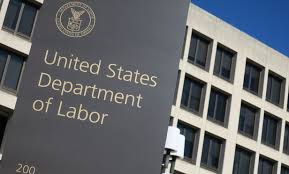Article
In our briefing, Gathering Clouds Form for Healthcare Plan Sponsors, we raised a caution flag about the emergence of healthcare and welfare (“H&W”) plans as a focus of examinations by the U.S. Department of Labor (“DOL”) and a new horizon from which fiduciary lawsuits might appear. The enactment of the Consolidated Appropriations Act of 2021 (“CAA”) instigated these dual threats to employee benefit plan sponsors.

The expansion of fiduciary responsibility into the healthcare and welfare space requires new methods and controls.
A Reason for Concern
HR managers are faced with a dual issue when it comes to their company’s healthcare programs. The first is that healthcare plans now have broader fiduciary responsibilities. Second, traditional fiduciary committees often do not oversee healthcare plans and human resources departments frequently do not have the control structures that such committees have implemented in recent years. This may force many HR executives to develop and execute a risk management and compliance procedure on their own.
The Impetus for Change
The CAA stipulates that H&W plan brokers and consultants must report all direct and indirect income from services rendered to the plans. This requirement was modeled after the Employee Retirement Income Security Act (“ERISA”) regulation that has long required similar disclosures for retirement plans and which defines plan sponsors’ duties to evaluate them. Fiduciaries who neglect to gather and assess these CAA disclosures can be held accountable by the DOL.
DOL Investigations Embrace Healthcare Plans
Even before the CAA was passed, the DOL started looking into group health plans. The DOL has intensified its health plan-related investigations in response to the CAA.
 Investigations may start due to participant complaints or just by chance. The DOL has lately concentrated its attention on ERISA compliance, regardless of the catalyst, highlighting sponsors’ fiduciary responsibility in operating an H&W plan, keeping an eye on suppliers, and assuring the handling of participant claims for benefits.
Investigations may start due to participant complaints or just by chance. The DOL has lately concentrated its attention on ERISA compliance, regardless of the catalyst, highlighting sponsors’ fiduciary responsibility in operating an H&W plan, keeping an eye on suppliers, and assuring the handling of participant claims for benefits.
Additionally, the DOL has concentrated on specific enforcement goals during recent investigations, such as conformity with the Affordable Care Act coverage mandates (e.g., preventative care and emergency services) and requirements for mental health parity.
“…fiduciary governance for H&W plans is typically less formal than it is for retirement plans.”
Class Action Lawsuits Are an Added Threat
Unfortunately, the law firms that represent plaintiffs in breach of fiduciary cases are actively seeking potential employee litigants who participate in employer-sponsored group health insurance plans.
Although H&W benefit plans share the same fiduciary duties that give rise to retirement plan litigation, there hasn’t been the same level of extensive H&W lawsuits against employers. As a result, fiduciary governance for H&W plans is typically less formal than it is for retirement plans. Consequently, many employers aren’t prepared for enforcement of the CAA, which began in earnest in 2023.
The Road Ahead
We’ve arrived at the point when a string of regulatory maneuvers largely unnoticed by employers have grown significant enough to bring about a bigger, more significant change.
What can plan fiduciaries, therefore, do to lessen the rising risks?
- A structured, well-documented procedure to monitor health plan activities, service provider performance, and fees serves as the greatest line of defense against fiduciary responsibility in the context of health plans, much like it does in the case of fiduciary hazards in retirement plans. An annual assessment of the fees charged by brokers and consultants is essential.
- It is now appropriate for employers to designate a separate fiduciary committee or instruct the current retirement plan fiduciary committee to include H&W plan issues in its purview. The committees should, above all, keep written records of all committee activities. The first line of defense against fiduciary litigation is these written records.
Roland|Criss offers fiduciary governance, administration, and control practices for H&W plans.




